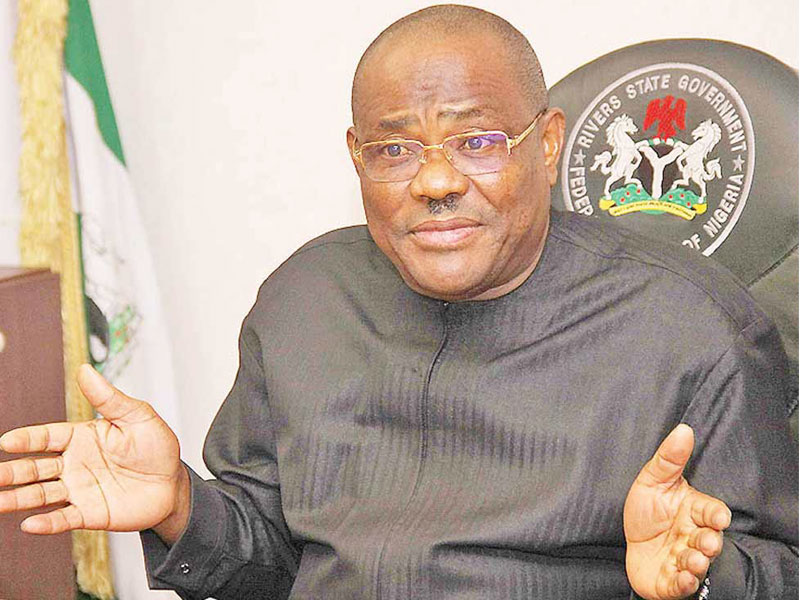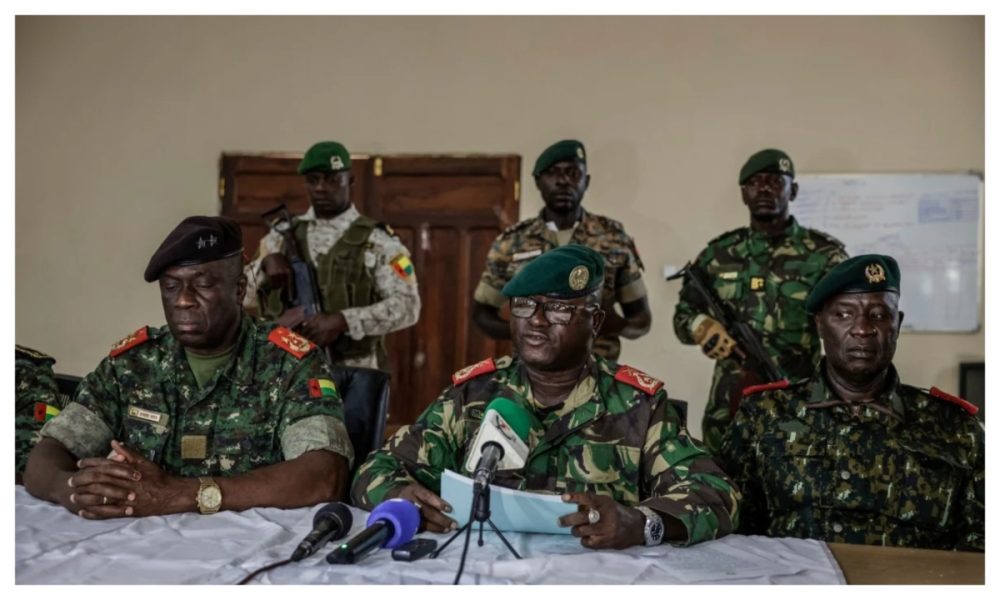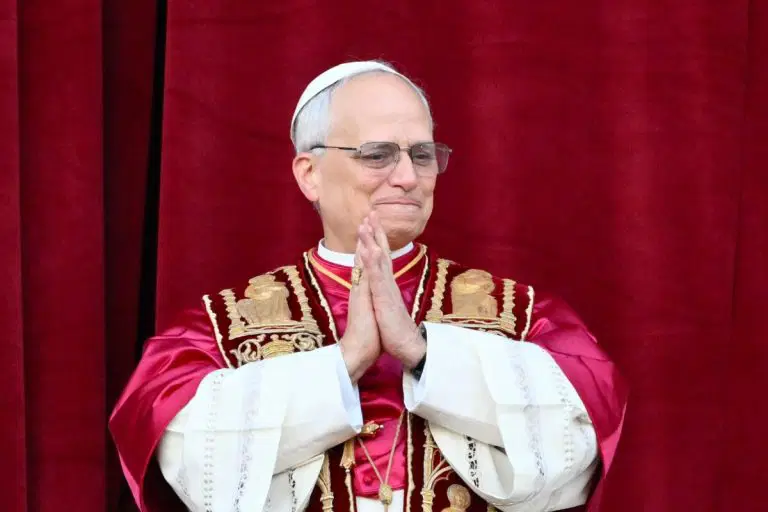Headline
UPDATED: How I Was Poisoned, Flown Out Of Nigeria As Rivers Gov – Wike [VIDEO]

The immediate past governor of Rivers State, Nyesom Wike on Sunday recounted how he survived after being poisoned in 2018 while in office as governor.
Speaking at a thanksgiving service in the church, Wike revealed that doctors told him that his intestines were all black, a situation he believed arose from the poisoning that reportedly took place at the state government’s secretariat.
He, however, expressed gratitude that he survived the poison miraculously to the surprise of the doctors who diagnosed him.
His words: “There is a lot to thank God for; from 2015 to 2023 God was in charge; everybody who knew how we came to power knew it was turbulent, but God saw us through. I will give three instances why we need to thank God. While in your office, so many people think as governor everything is going on well with you.”
READ ALSO: BOMBSHELL! I Was Poisoned At PDP Secretariat, My Liver, Kidney Shut Down – Wike
“As governor, nobody wants to ask if you are well, all is, you wake up in the morning, see text messages, accounts you are to send money to… December 2018, that day was the day my former Chief of Staff was to have Thanksgiving ceremony, and I was to attend that event on a Sunday. On that Sunday, I never came down from my room, it was bad. For those who attended the January 1st State Banquet of 2019, will know that I never spoke that day, I just sat down there and told my deputy to speak on my behalf, people didn’t know what was going on.
“After that banquet, 12:00 am midnight, I was taken out of the country because I thought it was over, when we got to Beirut the doctors told me they had to do so many tests…they came back the next morning and said it was bad; my kidney, liver were gone.
“Doctors told me I’d been poisoned and that my liver and kidney were no longer functioning. I believe I was poisoned at the secretariat. To God be the glory, I survived it.”
“I never knew that I had been poisoned in our campaign secretariat; my intestines were all black. The doctors did everything they could do, and the next day the doctors came and said everything was turning around; to the glory of God after about one week, they said I could then go. I came back to Nigeria and told those who are close to me that we wouldn’t stop at anybody’s house because I could not identify how I was poisoned; everyone was a suspect to me.
READ ALSO: Wike Speaks On Alleged Defection To APC
“When I was going through my presidential primaries, my wife called me from London that she has been diagnosed with cancer, I called my G5 members who were supporting me, I said there is a problem and I don’t think I can continue with this race; I called my wife back and she said no, continue so we started (the race).
“On the night of the primaries, I went with my wife to Abuja, and from nowhere, we were called that fire gutted my wife’s room. We called the fire service everything was burnt; up to today, we haven’t repaired that room… and nobody knew, I just kept quiet. That is why I said some people don’t ask what I’m passing through–you just want me to give you! give you! you don’t even know if I’m dying.
“But I thank God today that my wife is hale and hearty. When people text me, my wife is sick, my mother is at the hospital, I always say should I text back, my wife is also in hospital? If anything should have happened you can imagine the effect on my children.
“The last one, as we finished the primary, my wife went to Lagos to bring my daughter, they landed at the air force base, and I said when they land I will just enter and go to Lagos (somebody was waiting for me that I must see). After 15 minutes of take-off, we heard a sound, I saw the air hostess running.
READ ALSO: PDP Govs Forum To Honour Wike, Makinde, Ortom, Others
“I rushed to the cockpit, but the door was locked; nobody to communicate with; she ran back and told us one engine is gone; the pilot said it’s safer for us to turn back (we were three)…by the grace of God before we landed, we saw several ambulances, fire service trucks line up; I didn’t know the pilot had communicated with them that there was a serious problem, to the glory of God we landed safely; people just see me as a strong man; part of leadership is not to frighten one’s supporters,” he said.
Video:
How I was poisoned as Rivers Gov — Wike pic.twitter.com/CzztqBBEf6
— Vanguard Newspapers (@vanguardngrnews) June 18, 2023
Source: VANGUARD
Headline
Coup: Guinea-Bissau Junta Releases Six Held Opposition Politicians

Guinea-Bissau’s ruling junta on Tuesday released six members of the political opposition who had been detained since a coup last month.
The six freed opposition members are said to be close associates of Domingos Simoes Pereira, head of the PAIGC party that led the country to independence in 1974.
Pereira has been in custody since the coup.
In a statement by the High Military Command, the junta’s governing body, the releases are described as a sign of good faith and a step towards the return to constitutional normality and respect for international rights.
READ ALSO:Why West African Troops Overturned Benin’s Coup But Watched Others Pass
The army seized power on 26 November after ousting outgoing President Umaro Sissoco Embalo in the wake of a presidential vote.
After taking over, the military suspended the electoral process and announced it would take control of the West African country for a period of one year.
Recall that another opposition candidate, Fernando Dias, took refuge in Nigeria’s embassy, which granted him asylum, while Embalo fled the country after being briefly detained by the military at the time of the coup.
Meanwhile, Senegal’s Foreign Minister, Cheikh Niang, led a delegation to Guinea-Bissau, where he met with detained opponents and requested their release.
Headline
7 Territories Still Under Colonial Rule

Even though most nations became independent in the last century, some territories are still ruled by other nations.
Contents
1. Western Sahara
2. Guam
3. American Samoa
4. United States Virgin Islands
5. Falkland Islands / Malvinas
6. Gibraltar
7. Bermuda
Many of them remain on the United Nations list of non-self-governing territories, meaning they have not completed the process of decolonization. These places usually depend on bigger countries for laws, passports, defence, or political control.
In this article, Nigerian Tribune highlights 7 territories still under colonial rule:
READ ALSO:Nigeria Ranks World’s 102nd Happiest Nation, US, Germany Not Among 20 Top Counties
1. Western Sahara
Western Sahara remains one of the world’s biggest unresolved colonial issues. Morocco controls most of the territory, but the Polisario Front wants independence for the Sahrawi people. The UN is still trying to help both sides agree on a peaceful solution.
2. Guam
Guam is an important US territory in the Pacific, used heavily for American military operations. The US oversees its defence and foreign relations.
People living there are US citizens, but they cannot vote in presidential elections and do not have full representation in Congress.
READ ALSO:FULL LIST: US To Review Green Cards From 19 ‘Countries Of Concern’ After Washington Shooting
3. American Samoa
American Samoa has more local control than Guam, but the United States still decides immigration, defence, and foreign affairs.
Residents are considered US nationals and must apply if they want full citizenship.
4. United States Virgin Islands
The US Virgin Islands have their own legislature, but the United States makes major constitutional and political decisions. The territory depends heavily on US federal support.
5. Falkland Islands / Malvinas
The Falkland Islands remain controlled by the United Kingdom (UK), but Argentina has long disputed this claim, having been in control of the Islands for a few years before 1833.
The people living there voted strongly to stay British, yet the sovereignty dispute continues to appear in the UN.
READ ALSO:Six Countries With Highest Number Of Billionaires In 2025
6. Gibraltar
Gibraltar sits at the Southern tip of Spain. The United Kingdom controls it, but Spain insists the territory belongs to them.
Gibraltarians have repeatedly voted in favour of remaining British, but the dispute is still discussed within the UN Decolonisation Committee.
7. Bermuda
Bermuda is a British Overseas Territory situated in the North Atlantic Ocean. Although it manages most of its own internal affairs and enjoys a strong economy with modern facilities, the United Kingdom still handles its defence and represents it in global matters.
Headline
Russia-Ukraine War: Pope Leo Calls For Global Christmas Truce

Pope Leo XIV on Tuesday renewed his call for a global truce on Christmas Day, saying he felt “great sadness” after Russia “apparently rejected a request” for a pause in fighting.
Speaking to reporters at his residence in Castel Gandolfo near Rome, the Pope urged all sides involved in conflict to observe at least one day of peace.
“I am renewing my request to all people of goodwill to respect a day of peace — at least on the feast of the birth of our Saviour,” Leo said.
Recall that Russia invaded Ukraine in February 2022 and has repeatedly turned down calls for a ceasefire, arguing that any pause would give Ukraine a military advantage.
READ ALSO:Russian Strikes Kill Five In Ukraine, Cause Power Outages
“Among the things that cause me great sadness is the fact that Russia has apparently rejected a request for a truce,” the pope said.
Referring to conflicts worldwide, Leo added, “I hope they will listen and there will be 24 hours of peace in the whole world.”
The appeal came as fighting continued in eastern Ukraine. On Tuesday, Ukrainian forces withdrew from a town after heavy battles with Russian troops. Russian strikes killed three civilians and left thousands without power during winter temperatures.
READ ALSO:Trump Blasts Ukraine For ‘Zero Gratitude’ Amid Talks To Halt War
There was no indication of progress toward ending the war after separate meetings last weekend in Miami between the United States officials and negotiators from Russia and Ukraine. The conflict is nearing four years with no settlement in sight.
Earlier this month, Pope Leo met Ukrainian President Volodymyr Zelensky. When asked whether he would accept Zelensky’s invitation to visit Ukraine, the pope said, “I hope so,” while noting that it was not possible to say when such a visit could happen.
Leo also warned that efforts to secure peace without European diplomatic involvement were “unrealistic”, expressing optimism that President Donald Trump’s proposed peace plan could bring a “huge change” to the transatlantic alliance.

 News3 days ago
News3 days agoPHOTOS: New Era In Furupagha-Ebijaw As Okpururu 1 Receives Staff Of Office

 Metro5 days ago
Metro5 days agoJUST IN: Former Edo Information Commissioner Is Dead

 News2 days ago
News2 days agoUBTH CMD Marks 120 Days In Office, Expresses Commitment To Providing Conducive Working Environment

 News3 days ago
News3 days agoFG Declares Public Holidays For Christmas, New Year Celebrations

 Metro5 days ago
Metro5 days agoShe Grabs, Pulls My Manhood Anytime We Fight — Husband

 News2 days ago
News2 days agoOPINION: Gumi And His Terrorists

 News2 days ago
News2 days agoFIRS Confirms NIN As Tax ID

 Metro5 days ago
Metro5 days agoWhy I Charged My Husband Money For Sex —Woman

 News2 days ago
News2 days agoOPINION: My Man Of The Season

 News5 days ago
News5 days agoMy Wife Dented My Image, Took Our Marital Crises To Radio Stations — Husband






























